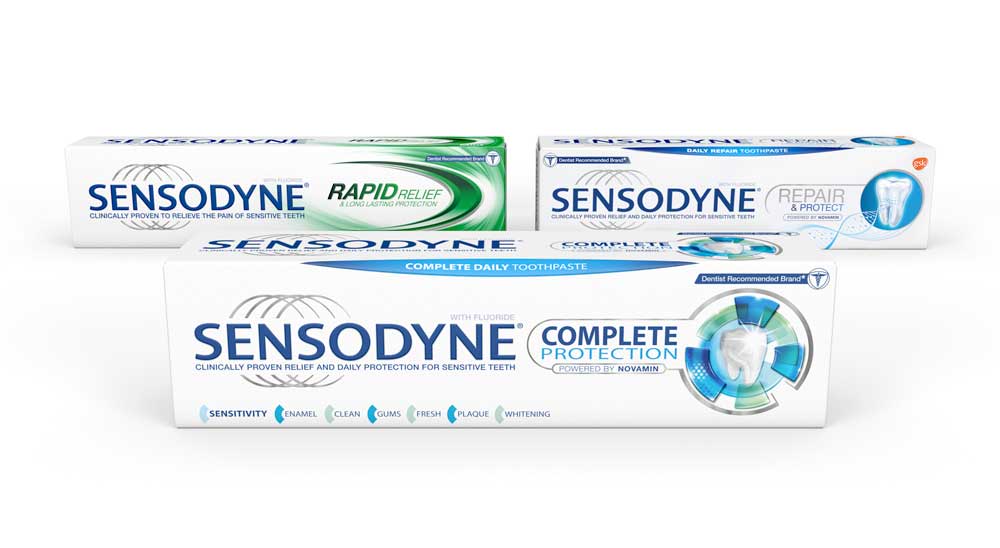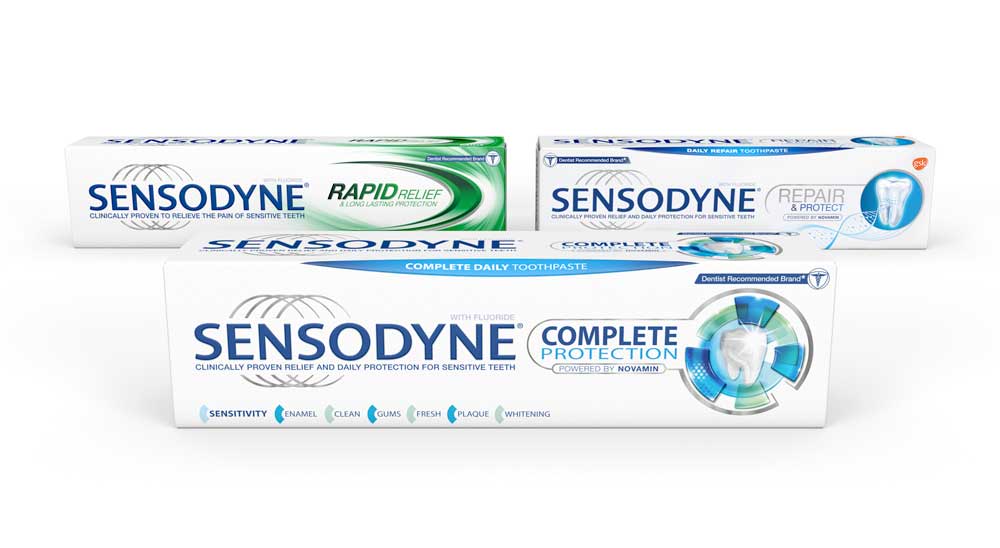Avoiding Ice Cream? Here’s What’s Really Causing Your Sensitive Teeth
If sensitive teeth are making your summer miserable, then we feel your pain. Tooth sensitivity is a common bugbear for lots of us - one in three to be precise - and it means missing out on our favourite chilled treats like iced coffees and ice-cream sundaes. But wise up to how it happens and you can stop it from spoiling your fun.

If sensitive teeth are making your summer miserable, then we feel your pain. Tooth sensitivity is a common bugbear for lots of us - one in three to be precise - and it means missing out on our favourite chilled treats like iced coffees and ice-cream sundaes. But wise up to how it happens and you can stop it from spoiling your fun.
This is a Marie Claire Advertorial
If sensitive teeth are making your summer miserable, then we feel your pain. Tooth sensitivity is a common bugbear for lots of us - one in three to be precise - and it means missing out on our favourite chilled treats like iced coffees and ice-cream sundaes. But wise up to how it happens and you can stop it from spoiling your fun.
The trouble starts when tooth enamel becomes eroded, exposing the soft dentine beneath. This dentine is packed with tiny, fluid-filled tubes that lead to the nerve and when you have cold drinks or hot foods it makes the fluid move, giving a jolt of pain.Here are five things that cause sensitive teeth...
Acid erosion Certain food and drinks contain acids that soften tooth enamel. If you brush your teeth straight after drinking, say, fruit juice, it will be more susceptible to damage. Some of the worst culprits are citrus fruits, juices and smoothies, wine, vinegar dressings and fizzy drinks. Avoid brushing straight after acidic food and drinks (ideally wait at least an hour) to allow your enamel to re-harden.
Enthusiastic brushing technique You can have too much of a good thing! Vigorous brushing can wear away both tooth enamel and gums, so go easy. Use a soft-bristled brush and a Sensodyne desensitising toothpaste, which can help eliminate those twinges. Brush for at least two minutes using gentle, circular movements, and concentrate on areas where plaque gathers, such as biting surfaces and where your teeth and gums meet.
Grinding your teeth Many people grind their teeth at night, while others clench or grind their teeth during the day without realising they're doing it or the damage they're causing. Regular grinding and clenching can wear down enamel and expose the underlying dentine, which can't be reversed. Using a desensitising toothpaste such as Sensodyne Complete Protection will build a protective layer over the vulnerable areas of your teeth, which relieves pain and, with continued daily use, can prevent tooth sensitivity from coming back. If you're a night-time tooth grinder, talk to your dentist about using a mouth guard too.
Celebrity news, beauty, fashion advice, and fascinating features, delivered straight to your inbox!
Receding gums As we get older, our gums recede, but vigorous brushing and gum disease can accelerate this process leading to painful tooth sensitivity. A good oral health routine of daily brushing and flossing will help you look after your gums as well as your teeth. Not a fan of flossing? It's time to start giving it some attention as it helps prevent harmful plaque building up between teeth and by the gumline - areas your toothbrush simply can't reach.As you floss, curve the thread around the base of each tooth, beneath the gumline and avoid a sawing movement, which can cause bleeding and irritation. Don't forget to brush with a Sensodyne desensitising toothpaste twice a day to ease the pain of tooth sensitivity.
Cracked tooth or cavities Tooth sensitivity may be a sign that you have a cracked tooth or a cavity. Think this could be the case? See your dentist as soon as possible, who will advise you on the best course of action.

Unless you need dental treatment, the good news is you can ease the ouch factor simply by using a Sensodyne desensitising toothpaste, such as Complete Protection, twice daily. Offering all you get from a regular toothpaste, it protects against plaque, maintains healthy gums, restores natural whiteness and freshens breath - plus it creates a protective layer over sensitive areas, strengthens and re-hardens enamel.
The leading destination for fashion, beauty, shopping and finger-on-the-pulse views on the latest issues. Marie Claire's travel content helps you delight in discovering new destinations around the globe, offering a unique – and sometimes unchartered – travel experience. From new hotel openings to the destinations tipped to take over our travel calendars, this iconic name has it covered.